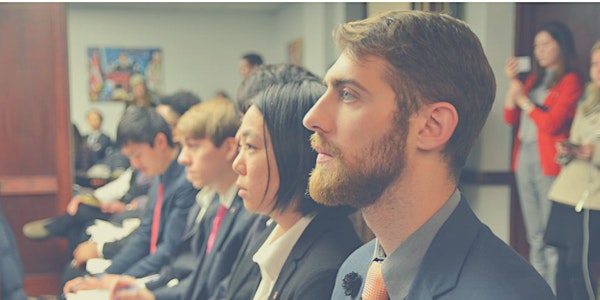
5th US-JAPAN-KOREA TRILATERAL SYMPOSIUM
Date and time
Location
National Press Club
The Holeman Lounge 529 14th Street NW | 13th Floor Washington, DC 20045Description

2018 will carry with it many challenges from 2017 that have deep ramifications of American, Japanese, and Korean affairs. The three countries not only have to deal with North Korean provocations and regional challenges, but will also have to tackle social and economic issues. We need new ideas that address our 21st century issues.
Far from being inexperienced, today's young generation is perhaps better prepared than any to carry the torch of US-Asia relations and policy. Thanks to cross-cultural exchange programs, the Internet, and immigration trends, the next generation of leaders have more access and are more knowledgeable on world affairs than ever. Using today’s resources to their advantage, these leaders will provide sound policies and continue to strengthen U.S.-Japan-Korea relations.
On January 4, 2018, the International Student Conferences (ISC), Sasakawa Peace Foundation USA (SPFUSA) and Korea Foundation (KF) will provide the voice of future leaders for U.S.-Japan-Korea cooperation. These student leaders alongside senior experts will discuss key present-day topics directly relevant to the US, Japan and Korea. The fifth Trilateral Symposium will demonstrate to the larger audience the ability of the next generation to engage in much needed productive dialogue on U.S.-Japan-Korea relations, including ideas for improving trilateral cooperation.
Please note that space is limited, RSVPs are required.
Registration Begins at 8:00 AM
Welcome & Opening Remarks (8:30AM - 8:55AM)
Ambassador James Zumwalt, CEO of Sasakawa Peace Foundation USA
Linda Butcher, Executive Director of International Student Conferences
Panel 1: Digital Diplomacy (9:00AM - 10:15AM)
Panelist | Julie Chung, Director of Office of Japanese Affairs at U.S. Department of State
Panelist | Karl Friedhoff, Fellow of Public Opinion and Foreign Policy at the Chicago Council on Global Affairs
Panelist | Shanti Shoji, Co-Founder and Vice President of Kizuna Across Cultures
Student Panelist | Rebecca Anderson, Yonsei University, Korea-America Student Conference U.S. Chair
Student Panelist | Ayano Sasaki, Kyushu University, Japan-America Student Conference Japan Chair
Moderator | Wallis Stanfield, Auburn University, 2016 Japan-America Student Conference
Panel 2: Challenges in the Workplace (10:30AM - 11:45AM)
Panelist | Frank Ahrens, Author of "Seoul Man", Vice President at BGR Public Relations
Panelist | Brigid Schulte, Director of the Better Life Lab and The Good Life Initiative at New America
Student Panelist | Erika Ito, Tokuku University, Japan-America Student Conference Japan Chair
Student Panelist | Jiyoung Park, Ewha Womans University, Korea-America Student Conference Korea Chair
Moderator | Florence Maher, U.S. Department of State, 2008 Korea-America Student Conference, 2005 Japan-America Student Conference

Organized by
Sasakawa Peace Foundation USA is an independent American non-profit, non-partisan institution devoted to research, analysis, and better understanding of the U.S.-Japan relationship. Through research and education programs, Sasakawa USA facilitates people-to-people exchange and dialogue between American and Japanese policymakers, influential citizens, and the broader public.
The Korea Foundation (KF) was established in 1991 to promote awareness and understanding of Korea and to enhance goodwill and friendship among the international community through its cultural, academic and intellectual exchange activities and programs. As a leading organization of Korea’s international exchange and public diplomacy initiative, some of its major works include: providing support for Korean studies overseas, organizing/ supporting international forum, assisting research institutions/ think tanks around the world in their research, conferences and publications, promoting exchanges of performing arts and exhibition, and establishing Korean galleries in museums abroad. Currently, the Korea Foundation has 7 overseas branches in major cities which are Washington D.C., Los Angeles, Tokyo, Beijing, Moscow, Berlin, and Hanoi.